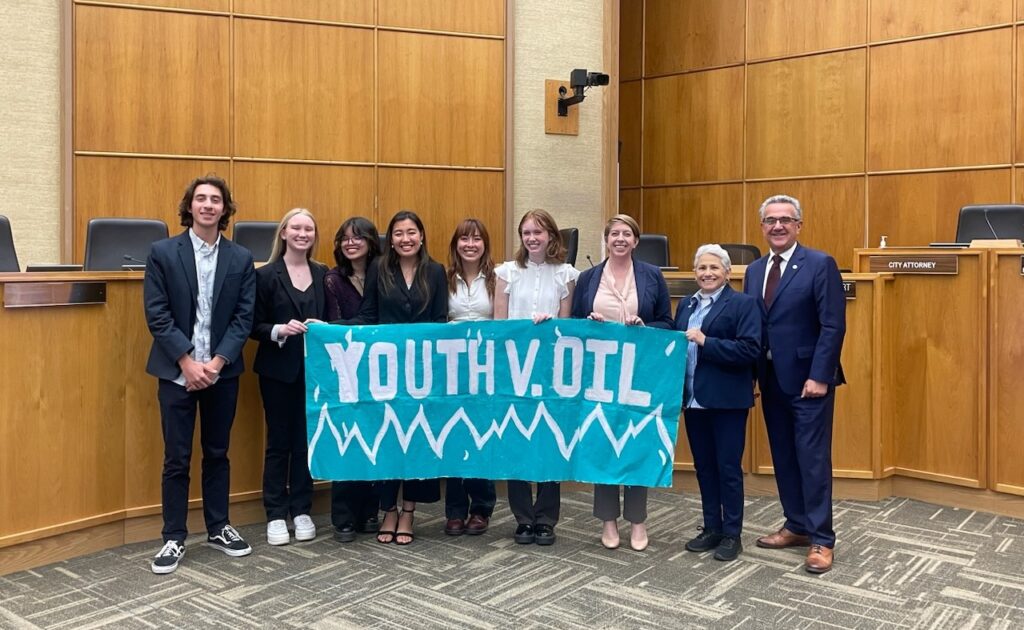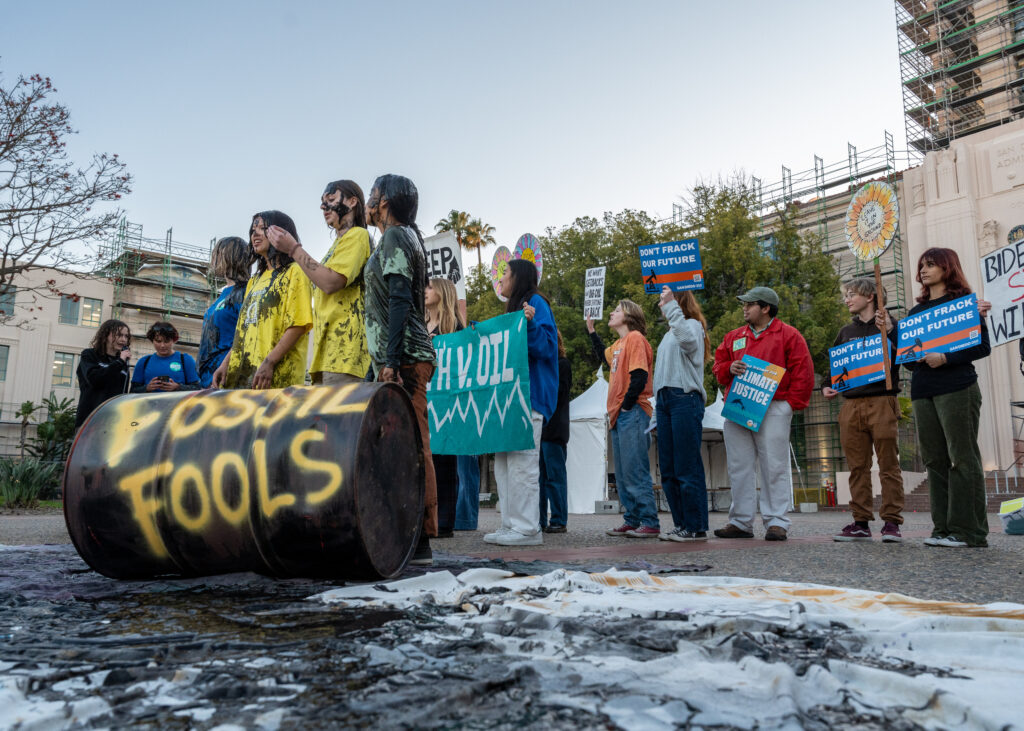The local youth-led campaign was instrumental in securing City resolutions in support of keeping the law to protect neighborhoods from toxic drilling
San Diego, CA – After months of advocacy and activism from grassroots organizations and frontline communities, including Youth v. Oil in San Diego, last night (June 26) Big Oil withdrew its referendum to overturn the oil setback law that was passed in 2022.

Despite spending nearly $61 million on deceitful efforts, Big Oil conceded defeat. Senate Bill 1137 will take effect immediately, protecting California frontline communities by prohibiting oil companies from drilling new or reworked oil wells within 3,200 ft of places where people work, learn, live, and play, and increasing regulations on existing wells within this zone.
Nearly 3 million people currently live within this 3,200 ft setback, a majority being Black, Indigenous, and people of color who contribute the least to pollution and climate change, yet suffer the worst impacts. With this win, California has taken a big step towards fighting environmental injustice.
Youth v. Oil, SanDiego350’s youth-led campaign dedicated to ending fossil fuel extraction in California, has worked tirelessly to pass resolutions at city councils in San Diego County and to educate voters about the referendum, doing its part in the bigger movement throughout California.
“I’m grateful for the five cities that passed our resolution and the hundreds of young people who worked on the campaign,” said Abby Deckert, a SanDiego350 Board Member and a rising senior at Santana High School. Deckert was referring to the cities of San Diego, Encinitas, La Mesa, Del Mar and Vista, which all passed resolutions in the past few months to support keeping the law in place.

“It is about time Big Oil recognized that Californians support healthy neighborhoods over pollution and climate destruction,” said San Diego Council President Pro Tem Joe LaCava, who led the City of San Diego resolution to oppose the referendum of SB 1137. “The audacity to oppose sensible setbacks is a reminder that the fight to protect neighborhoods, the public’s health, and the climate are far from over. Thankfully, as we saw in San Diego, today’s youth are taking this personally and will continue fighting for their future.”
“This is a major turning point,” said Sofia Carrasco, Youth v. Oil’s Resolution Team Lead and a rising sophomore at Canyon Crest Academy, “It shows that Big Oil is on its way out. But this is only the beginning for us. As temperatures continue to rise globally due to greenhouse gas emissions from the fossil fuel industry, we will keep fighting for a rapid, just transition to a fossil free California.”
“In San Diego, this campaign has been driven by the hard work of our youth activists,” said Emma Weibel, SanDiego350’s Youth v. Oil Intern and a rising senior at La Jolla High School. “I am so proud of our work and feel so empowered by what grassroots activism has achieved. This is a win for climate justice and for our futures.” She also noted that youth leaders had stayed on late-night calls and waited hours to make public comments at city councils, met with local council members, delivered presentations, and engaged with the public.
“This shows that young people like me have the political power to effect change,” said Daniel Hernandez, Youth v. Oil member and a rising senior at Bonita Vista High School. “You can be sure that we will keep fighting Big Oil’s efforts to poison communities and cause climate disasters.” He pointed to Assembly Bill 2243, current legislation that would create a loophole in the oil setback law and further environmental injustice by allowing affordable housing developments within the buffer zones.

One Response